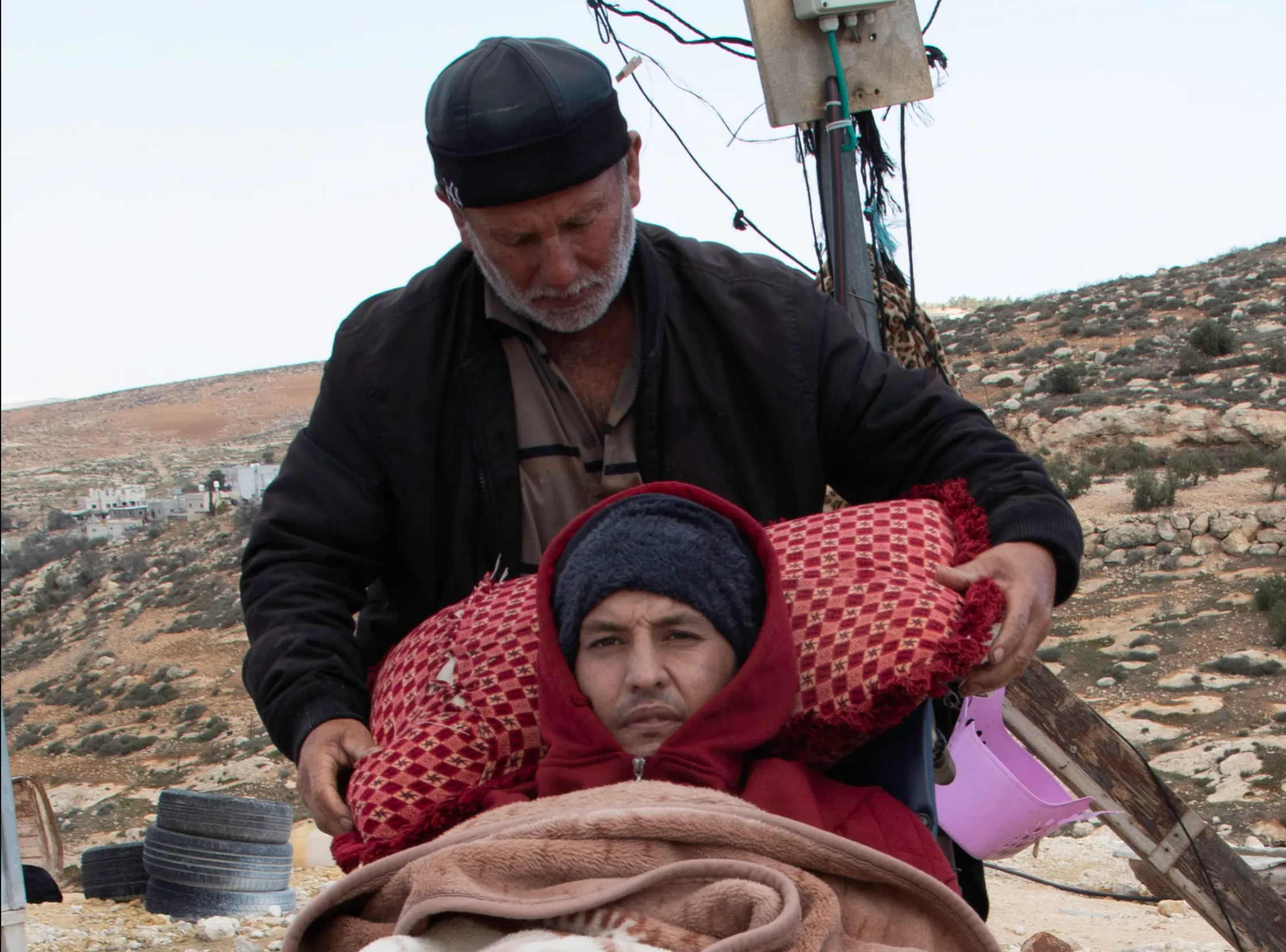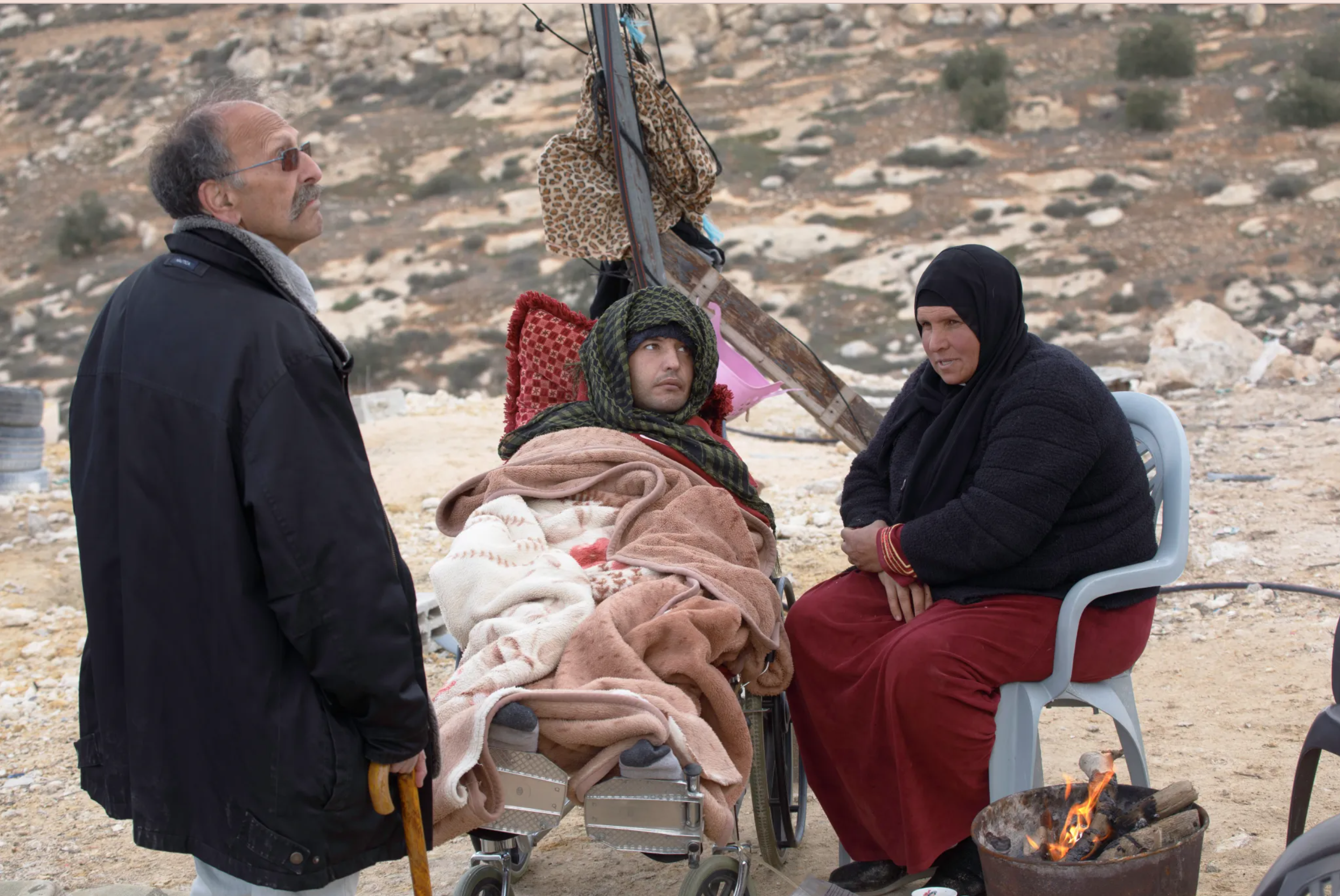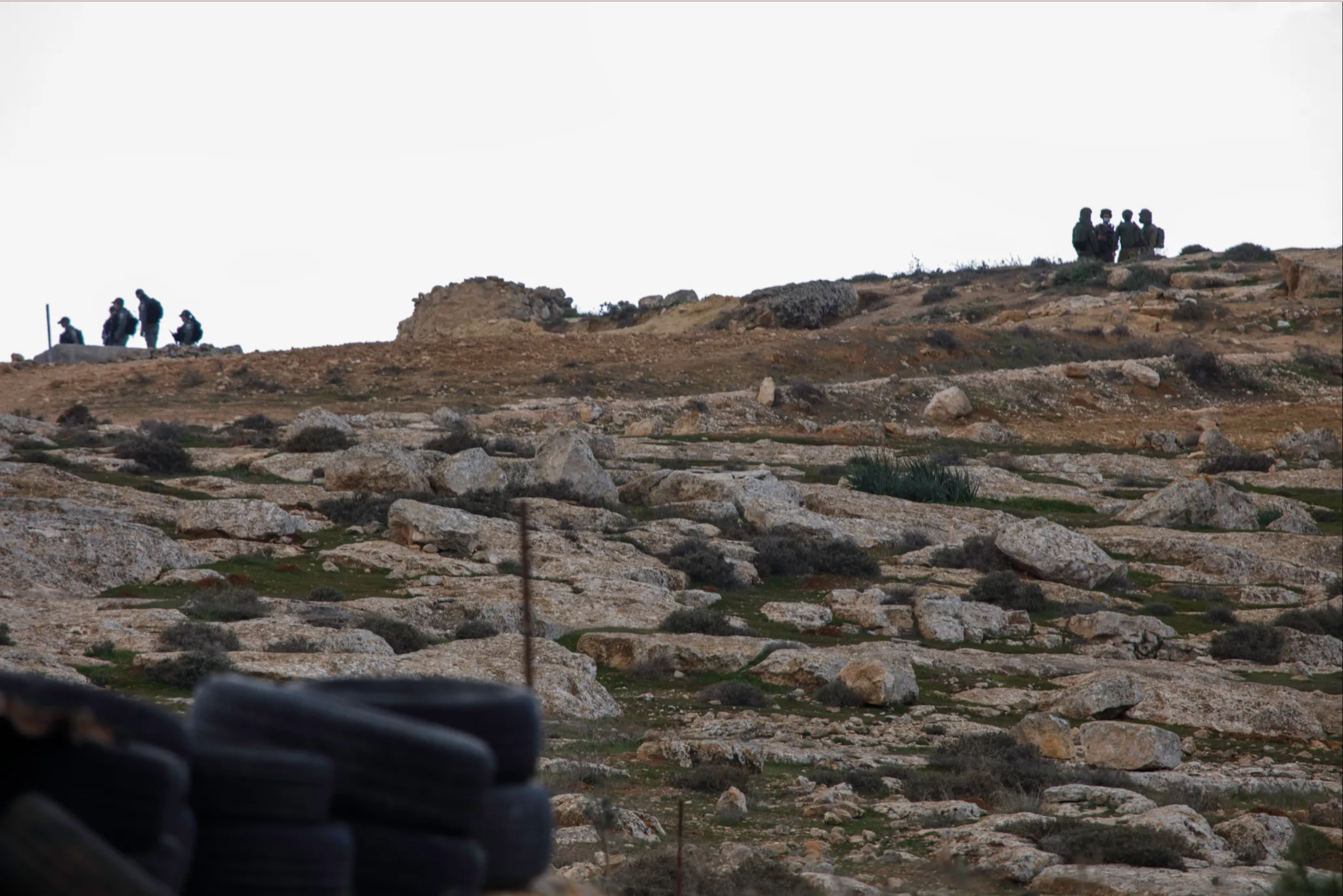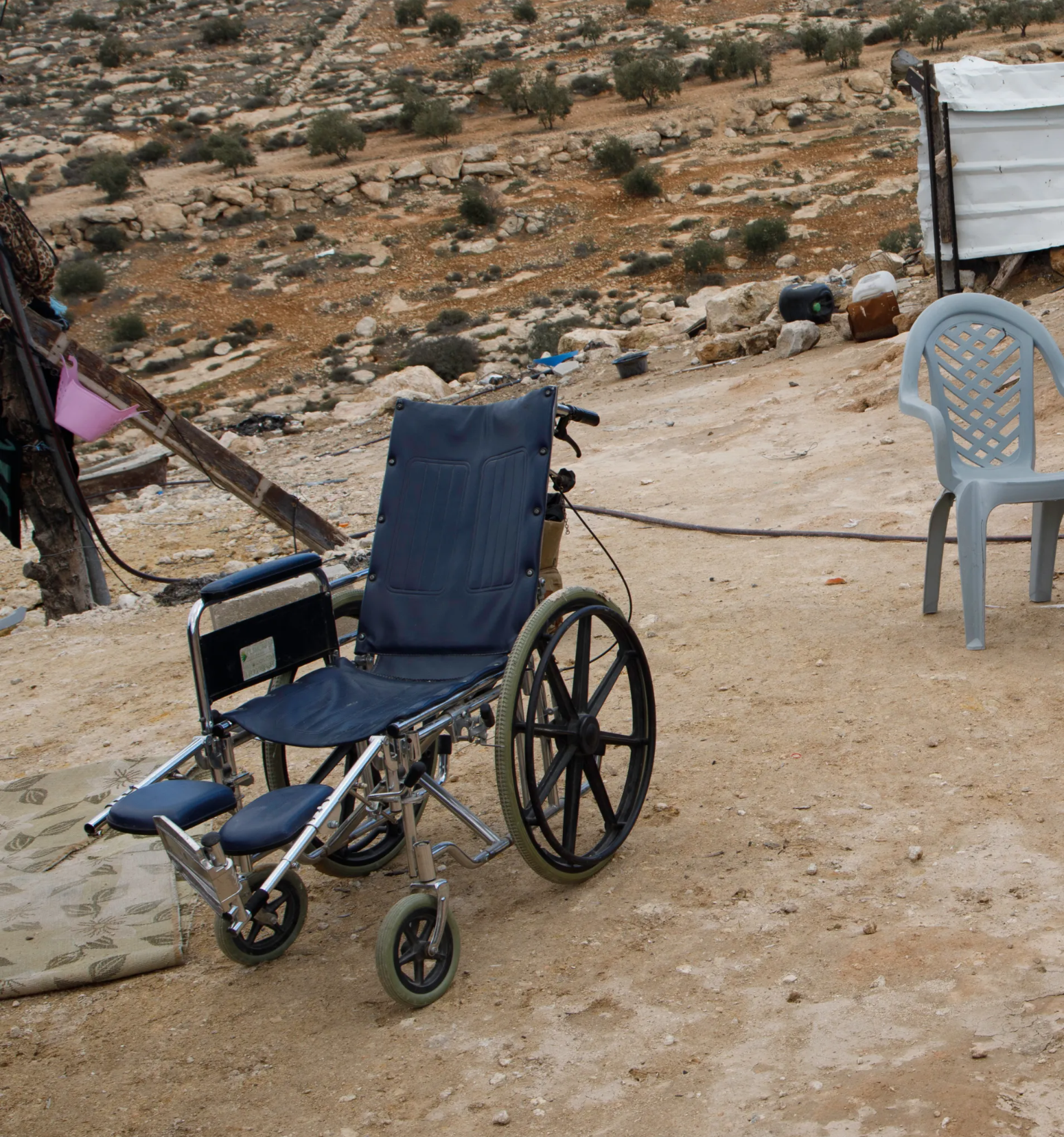David Shulman commemorates the death of Harun Abu Aram, Photographs by Margaret Olin
Harun Abu Aram died on February 14.
I don’t think Harun will rest in peace. His ghost will haunt us, like those of the myriad other Haruns the army or the settlers have killed. New deaths, new murders, are added to the tally every day. That, among other things, is what the Occupation means.
He was the young man, about to marry, shot in the neck by an Israeli soldier on January 1, 2021. Harun was trying to protect his father, Rasmi, and his neighbor, Ashraf, from the soldiers who had beaten them and confiscated Ashraf’s generator. The same soldiers then tried to prevent Rasmi and Ashraf from getting Harun to a hospital. He survived, paralyzed from the neck down, for two years and forty days. Most of you will remember this story.*
So far no charges have been pressed against the soldier who shot Harun. He was doing what soldiers do. The case has been closed. Maybe someday, if he is lucky, the soldier will suddenly feel remorse and thereby become human.
Neither the Israeli government nor the Palestinian Authority were prepared to cover the enormous costs of Harun’s many months in the hospital. Afterwards there was the wheelchair, then severe lung infections, then infected pressure sores, deep depression. The doctors had to amputate one of his legs. When I last saw him, about two months ago, he could hardly talk. But he made it clear that he wanted only to die at home in his village, Ar-Rakiz. Like his parents, Rasmi and Farsi, we, who knew Harun, respected his wish. In the end, he died in a hospital in Hebron city.
Ar-Rakiz is a place of shocking beauty despite the piles of rocks and blocks from houses the army has demolished. It was the only world Harun knew. The village is hemmed in on every side by violent settlers who, no doubt, sent the soldiers who destroyed him. Whenever I go there, I think, wrongly, that such beauty is not compatible with agony and evil.
In the South Hebron hills, in the occupied West Bank generally, Palestinian death is cheap, swift, and hardly noticed—by most Israelis. We happened to know Harun. You who read these words and see the pictures also knew him, in a way. We are sure you mourn him with us. Like every one of us, he was singular, unprecedented, irreplaceable, and loved. In a single moment his life was snuffed out by the Occupation. Our world has been impoverished by the loss of one more innocent person, a friend. We stand in grief together with Rasmi and Farsi and with his five sisters and one younger brother, Mhammed, who adored him; also with the young woman who was his bride-to-be. We will bear witness to the inhuman cruelty that caused their suffering. Let us add to our commandments an eleventh: Thou shalt not forget Harun.
A correction was made on March 5. An earlier version of the post stated that the army had closed the case against the soldier who shot Harun. The case is still waiting to be resolved.
This piece was written by David Schulman and photographed by Margaret Olin for Margaret Olin’s blog Touching Photographs. It can be accessed here along with other interesting stories.




